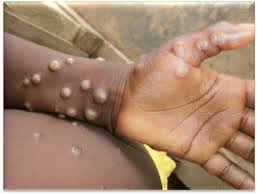
“The detection of a single case in a country where mpox is not presently in circulation constitutes an outbreak, requiring immediate response,” it added.
“Following a surge in the number and geographical spread of Mpox cases, the Africa Centres for Discase Control and Prevention and the WHO declared it a Public Health Emergency of Continental Security and a Public Health Emergency of International Concern in August 2024. Since then, the Ministry of Health and its partners have monitored the Mpox situation and taken proactive steps to improve our preparedness and response capacities, including enhancing surveillance for Mpox and increasing our testing capacity.”
“As a new development on this subject, the Ministry of Health wishes to inform the public that a case of Mpox has been detected in the country through the routine surveillance system on the 18th of July 2025. A sequencing process has been triggered to determine the virus subtype.”
“Several ongoing response activities include active case search, contact tracing, and community engagement to prevent the outbreak from spreading. Our health workers have been trained to deal with the situation. Please follow their advice.”
Basic information about mpox
Mpox is a disease caused by a virus. It can be transmitted from animals to humans and between humans. It spreads through close contact with an infected person, such as direct skin-to-skin contact; contact with saliva, respiratory secretions, bodily fluids or lesions; and a mother passing the virus to the foetus. Someone can also become infected by touching contaminated objects that have not been disinfected, such as contaminated surfaces, clothes, bedding, electronics, etc. Mpox symptoms include rashes, fever, headache, muscle ache, back pain, low energy, and swollen lymph nodes (groins). The rashes appear as blisters or sores and usually occur on the face, palms of the hands, soles of the feet, groin, and genital or anal areas.
What people should do when they suspect mpox
- Suspects should immediately visit the nearest health centre for investigation. Early detection of the disease helps manage the symptoms and prevent potential further transmission.
- Suspects should avoid contact (self-isolate) with other people until they have sought medical attention, to prevent the virus from spreading.
- Notify health workers of suspected cases in the community so that they can be tested and supported and the outbreak can be stopped from spreading.
- Adhere to the advice of health workers at all times.
The Ministry of Health expresses gratitude to the public for their cooperation with health workers during previous outbreak response efforts. We rely on your continued support to prevent this outbreak from spreading further. Please bear with us as we implement comprehensive response measures, including enhancing surveillance in communities, health facilities, and points of entry.
We reassure the public that we are monitoring the situation and will provide further updates as necessary. For more information or any assistance, please call our toll-free number, 1025.





